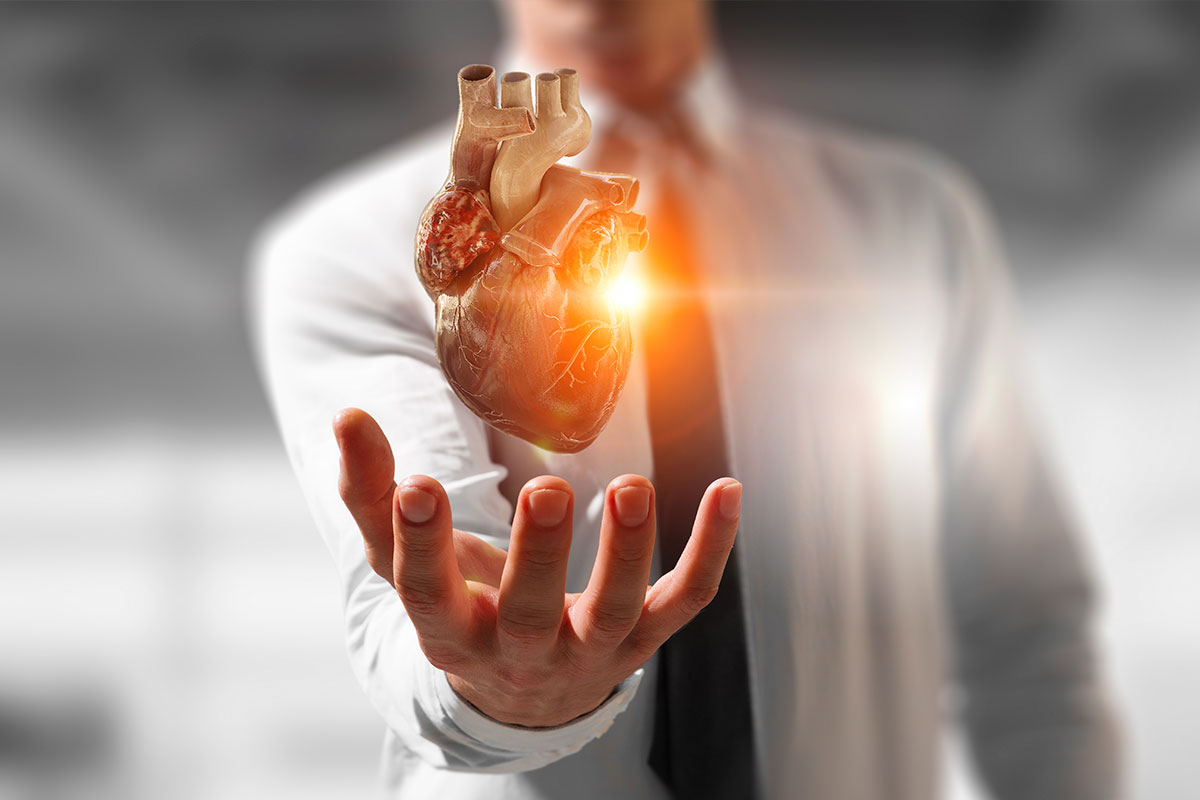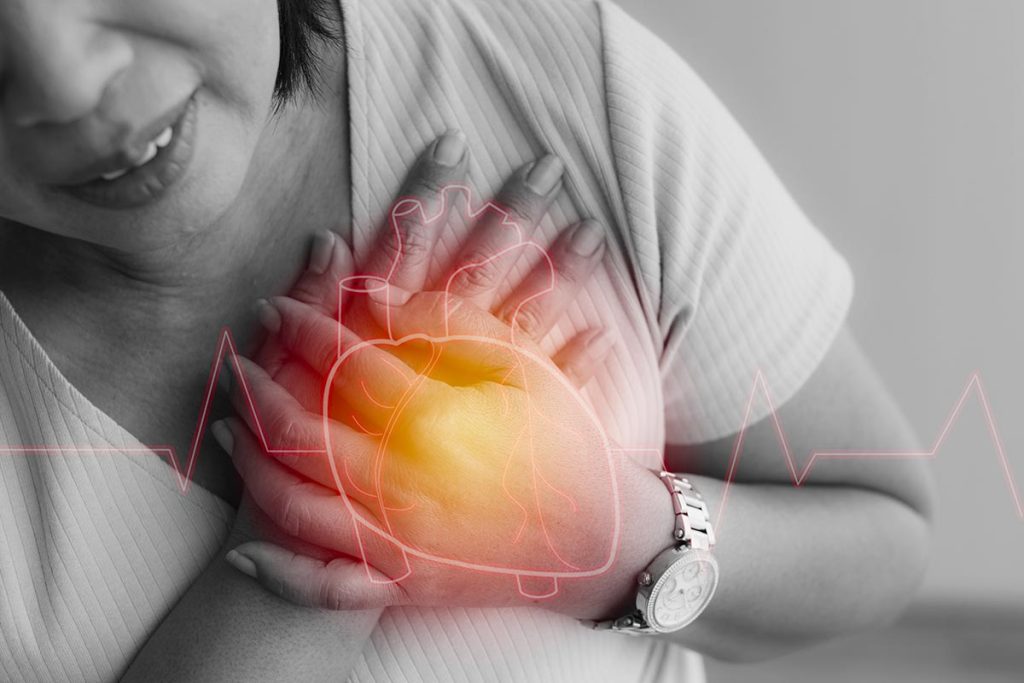Heart Muscle Disease or Cardiomyopathy Specialist in Michigan
Heart muscle disease, also known as cardiomyopathy, is a condition that affects the heart’s ability to pump blood efficiently. It is a complex and potentially life-threatening condition that requires specialized care. In Michigan, CardioQ – Heart & Wellness Center is a specialized medical center that offers comprehensive care for patients with cardiomyopathy.
The cardiomyopathy specialists at CardioQ are dedicated to providing exceptional care and expertise in the diagnosis, treatment, and management of heart muscle disease. They develop personalized treatment plans based on each patient’s unique needs, medical history, and lifestyle.
CardioQ‘s state-of-the-art facility features advanced diagnostic technologies, such as echocardiography and stress testing, to accurately diagnose and evaluate the severity of cardiomyopathy. The center’s cutting-edge treatments include medications, lifestyle modifications and implantable devices.
At CardioQ, patients receive compassionate care and support throughout their treatment journey. The cardiomyopathy specialists prioritize patient education, empowering patients to take an active role in their care and make informed decisions about their health. With a focus on patient-centered care, CardioQ is committed to improving the quality of life for patients with cardiomyopathy in Michigan.


Cardiomyopathy or Heart Muscle Disease
Cardiomyopathy means “disease of the heart muscle.” Cardiomyopathy damages the muscle tone of the heart and reduces its ability to pump blood to the rest of the body.
At CardioQ – Heart & Cardiovascular Wellness Center our Cardiomyopathy Specialist in Michigan help you in Cardiomyopathy Treatment and manage the disease.
Cardiomyopathy is so dangerous because it often goes unrecognized and untreated. Also, it is different from other heart problems because it frequently affects younger people.
As many as 1 in 500 adults may have cardiomyopathy, and many do not even know they have the condition.
Cardiomyopathy is a leading cause of heart failure and the most common reason for needing a heart transplant.

Risk Factors
The risk factors for cardiomyopathy are the conditions or habits that make it more likely that you will develop the disease.
Some risk factors can be changed and others cannot.
Medical conditions that increase your chances of developing cardiomyopathy:
- Coronary artery disease
- High blood pressure
- Cancer treatments (chemotherapy and/or radiation)
- Diabetes
- Thyroid disease
- Hemochromatosis (a disease in which the body stores excess iron)
- Diseases and/or infections of the heart
Complications
Cardiomyopathy may lead to other heart conditions.
- Heart failure – because the heart is not able to pump blood out of the heart effectively.
- Blood clots – that can form in the heart when blood is not pumped out effectively.
- Valve problems – because a bigger heart size can prevent the valves from closing properly.
- Cardiac arrest and sudden death – can be triggered by abnormal heart rhythms
Common questions
There are 4 main types of cardiomyopathy.
Dilated Cardiomyopathy
Dilated cardiomyopathy is the most common form of cardiomyopathy. Also called congestive cardiomyopathy, it affects the chambers of the heart by weakening their walls. In most cases, doctors do not know the cause of dilated cardiomyopathy. When the cause is unknown, it is called idiopathic.
Hypertrophic Cardiomyopathy
Hypertrophic cardiomyopathy, the second most common form of cardiomyopathy, causes a thickening of the heart’s walls. Most often, it is an inherited disease, but sometimes the cause is not clear. It can affect people of all ages.
Restrictive Cardiomyopathy
In the United States, restrictive cardiomyopathy is rare. It gets its name because the condition restricts the heart from stretching properly, which limits the amount of blood that can fill the heart’s chambers.
Ischemic cardiomyopathy
Cardiac ischemia happens when an artery leading to the heart becomes narrowed or blocked for a short time and oxygen-rich blood cannot reach your heart. In most cases of ischemia, this temporary blood shortage to the heart causes pain in the chest (called angina pectoris). In certain other cases, there is no pain (called silent ischemia).
Ischemic cardiomyopathy is the loss or weakening of heart muscle tissue caused by ischemia or silent ischemia. The ischemia usually results from coronary artery disease and heart attacks.
Treatment for ischemic cardiomyopathy is similar to that for other forms of cardiomyopathy, with special attention given to treating coronary artery disease. For patients whose hearts have been seriously damaged by ischemic cardiomyopathy, Cardiomyopathy Specialist in Michigan, at CardioQ may recommend a heart transplant.
Although cardiomyopathy is one of the less frequent forms of heart disease, it’s still important to be aware of the role heredity plays in the disease and to be familiar with its symptoms.
Check your family’s medical history to learn if you are at risk. Even if nobody in your family has cardiomyopathy, you need to know the warning signs:
- Unexplained shortness of breath
- Bloating
- Fainting
- Chest pains
If you have any of these symptoms, see your Cardiomyopathy Specialist.
Also, because drinking too much alcohol, eating foods without the proper vitamins, and exposure to toxins can all cause cardiomyopathy, you can lower your risk by living a heart-healthy lifestyle and proper Cardiomyopathy Treatment.
The goal of cardiomyopathy treatment is to reduce your symptoms. Your treatment plan will depend on what type of cardiomyopathy you have, how serious it is and what symptoms you are experiencing. Your doctor will suggest medications, surgery, lifestyle changes or a combination of the three to manage your condition.
Medications
If you have an underlying medical condition causing cardiomyopathy, then it is important to treat the underlying disease.
If your healthcare team knows the cause of your cardiomyopathy, then it will be treated immediately with the appropriate medications. Medications include:
- ACE inhibitors
- Beta-blockers
- Calcium channel blockers
- Antiarrhythmic drugs
- Anticoagulants
- Digoxin
Surgery and other procedures
Surgery may be an option for you. A surgically implanted cardioverter defibrillator (ICD) may be necessary to manage heart rhythm problems. It can deliver an electric shock to control an abnormal rhythm. An implanted pacemaker may be recommended to coordinate the contractions between the left and right sides of your heart. In a small number of cases, a heart transplant may be necessary.
Lifestyle
If cardiomyopathy is properly treated and controlled, many people with the condition can manage with just a few changes to their normal lifestyle. Some people might need to make major adjustments to their lifestyle. If you are told to limit or avoid some sports or activities, there are other light-to-moderate physical activities that can help you to remain healthy and avoid other heart problems. It is important to talk to your cardiologist about how you can live a healthy, active lifestyle without risking further complications.
A dietitian can advise you about healthy eating. They can provide tips to manage your fluid and salt intake to help your heart.
Giving up alcohol completely is a good idea. Losing weight can also help relieve symptoms by reducing the burden on your heart.
Talk to your Cardiomyopathy Specialist in Michigan at CardioQ about the lifestyle changes that will benefit you the most.
